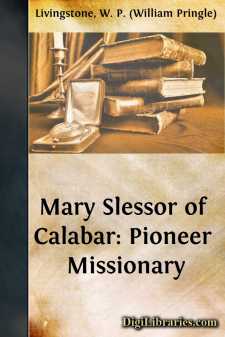Categories
- Antiques & Collectibles 13
- Architecture 36
- Art 48
- Bibles 22
- Biography & Autobiography 815
- Body, Mind & Spirit 144
- Business & Economics 28
- Children's Books 18
- Children's Fiction 14
- Computers 4
- Cooking 94
- Crafts & Hobbies 4
- Drama 346
- Education 58
- Family & Relationships 59
- Fiction 11834
- Games 19
- Gardening 17
- Health & Fitness 34
- History 1378
- House & Home 1
- Humor 147
- Juvenile Fiction 1873
- Juvenile Nonfiction 202
- Language Arts & Disciplines 89
- Law 16
- Literary Collections 686
- Literary Criticism 179
- Mathematics 13
- Medical 41
- Music 40
- Nature 179
- Non-Classifiable 1768
- Performing Arts 7
- Periodicals 1453
- Philosophy 65
- Photography 2
- Poetry 896
- Political Science 203
- Psychology 44
- Reference 154
- Religion 515
- Science 126
- Self-Help 85
- Social Science 82
- Sports & Recreation 34
- Study Aids 3
- Technology & Engineering 59
- Transportation 23
- Travel 463
- True Crime 29
Our website is made possible by displaying online advertisements to our visitors.
Please consider supporting us by disabling your ad blocker.
The Bracelets
by: Maria Edgeworth
Description:
Excerpt
THE BRACELETS.
In a beautiful and retired part of England lived Mrs. Villars, a lady whose accurate understanding, benevolent heart, and steady temper, peculiarly fitted her for the most difficult, as well as most important of all occupations—the education of youth. This task she had undertaken; and twenty young persons were put under her care, with the perfect confidence of their parents. No young people could be happier; they were good and gay, emulous, but not envious of each other; for Mrs. Villars was impartially just. Her praise they felt to be the reward of merit, and her blame they knew to be the necessary consequence of ill conduct; to the one, therefore, they patiently submitted, and in the other consciously rejoiced. They rose with fresh cheerfulness in the morning, eager to pursue their various occupations; they returned in the evening with renewed ardour to their amusements, and retired to rest satisfied with themselves and pleased with each other.
Nothing so much contributed to preserve a spirit of emulation in this little society as a small honorary distinction given annually, as the prize of successful application. The prize this year was peculiarly dear to each individual, as it was the picture of a friend whom they all dearly loved—it was the picture of Mrs. Villars in a small bracelet. It wanted neither gold, pearls, nor precious stones, to give it value.
The two foremost candidates for the prize were Cecilia and Leonora. Cecilia was the most intimate friend of Leonora, but Leonora was only the favourite companion of Cecilia.
Cecilia was of an active, ambitious, enterprising disposition; more eager in the pursuit than happy in the enjoyment of her wishes. Leonora was of a contented, unaspiring, temperate character, not easily roused to action, but indefatigable when once excited. Leonora was proud, Cecilia was vain. Her vanity made her more dependent upon the approbation of others, and therefore more anxious to please, than Leonora; but that very vanity made her, at the same time, more apt to offend. In short, Leonora was the most anxious to avoid what was wrong, Cecilia the most ambitious to do what was right. Few of their companions loved, but many were led by Cecilia, for she was often successful; many loved Leonora, but none were ever governed by her, for she was too indolent to govern.
On the first day of May, about six o'clock in the evening, a great bell rang, to summon this little society into a hall, where the prize was to be decided. A number of small tables were placed in a circle in the middle of the hall; seats for the young competitors were raised one above another, in a semicircle, some yards distant from the table; and the judges' chairs, under canopies of lilacs and luburnums, forming another semicircle, closed the amphitheatre. Every one put their writings, their drawings, their works of various kinds, upon the tables appropriated for each. How unsteady were the last steps to these tables! How each little hand trembled as it laid down its claims!...





















